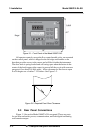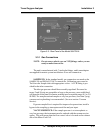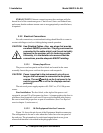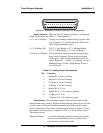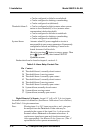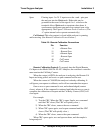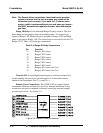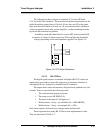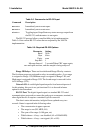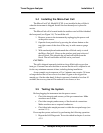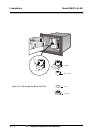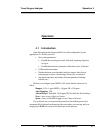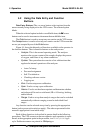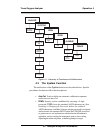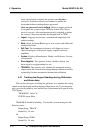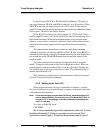
3 Installation Model 3000TA-XL-EU
3-10
Teledyne Analytical Instruments
Table 3-5: Commands via RS-232 Input
Command Description
as<enter> Immediately starts an autospan.
az<enter> Immediately starts an autozero.
st<enter> Toggling input. Stops/Starts any status message output from
the RS-232, until st<enter> is sent again.
The RS-232 protocol allows some flexibility in its implementation.
Table 3-6 lists certain RS-232 values that are required by the 3000TA
implementation.
Table 3-6: Required RS-232 Options
Parameter Setting
Baud 2400
Byte 8 bits
Parity none
Stop Bits 1
Message Interval 2 secondsWhen CRC opens again,
zero and span are done, and the sample is being analyzed.
Range ID Relays: There are four dedicated Range ID relay contacts.
The first three ranges are assigned to relays in ascending order—Low range
is assigned to Range 1 ID, Medium range is assigned to Range 2 ID, and
High range is assigned to Range 3 ID. The fourth range is reserved for the
Air Cal Range (25%).
Network I/O: A serial digital input/output for local network protocol.
At this printing, this port is not yet functional. It is to be used in future
options to the instrument.
RS-232 Port: The digital signal output is a standard RS-232 serial
communications port used to connect the analyzer to a computer, terminal, or
other digital device. It requires a standard 9-pin D connector.
The data is status information, in digital form, updated every two
seconds. Status is reported in the following order:
• The concentration in ppm or percent
• The range in use (HI, MED, LO)
• The span of the range (0-100 ppm, etc)
• Which alarms—if any—are disabled (AL–x DISABLED)
• Which alarms—if any—are tripped (AL–x ON).



